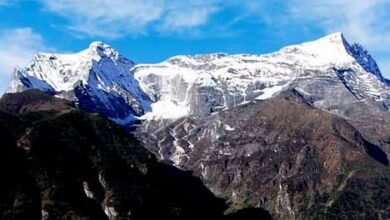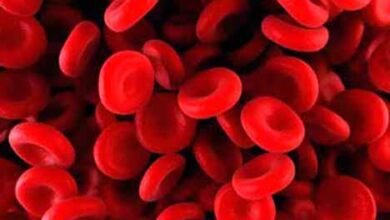
रसायन विज्ञान से संबंधित-131.
| 1. Which compound is not a Lewis acid? = BaCl2.
2. Who discovered potassium? = Humphry Davy. 3. At STP how many atoms are in a mole gas? = 6.023 X 1023 molecules. 4. Which contributes most to the salinity of ocean water? = Sodium Chloride. 5. Which chemical is used in detergent powder? = Sodium carbonate. 6. Which chemical is present in the molecule of chlorophyll? = Mg. 7. Which metal is protected by its oxide? = Aluminum. 8. The process of conversion of liquid to gas is called? = Evaporation. 9. Which is used to prevent the ore from rusting? = Galvanizing, Blueing. 10. Alkaline metals have properties? = Lose electrons easily. 11. What element is always present in a certain proportion in any compound? = Mass. 12. In alloys, which is called amalgam? = Mercury and zinc. 13. Which of the elements has an atomic number greater than that of fluorine? = Sodium. 14. Which is the material that is very hard steel (alloy of Fe & C) and Tungsten? = Tungsten. 15. Ascorbic acid is a popular name? = Vitamin C. 16. What does the energy of an ideal gas depend on? = On the mole number & temperature. 17. What is formed by burning magnesium? = Magnesium oxide (MgO). 18. Which chemical is present in vinegar? = Ethnoic acid / Acetic acid. 19. What is formed by mixing two or more pure substances in any proportion? = A mixture. 20. Such elements, which have properties of both metal and non-metal, are found? = The metalloids / semi –metals. 21. What depends on the chemical behavior of an atom? = Atomic number, by it we can get valence electrons. 22. What do the chemical properties of an element depend on? = Atomic number. 23. Who propounded the principle of uncertainty? = Heisenberg. 24. Who determines the chemical properties of an element? = Number of electrons. 25. What is the number of isotopes of hydrogen? = Three (Hydrogen, Deuterium & Tritium). Dr.(Prof.) Amarendra Kumar. =========== ========== ============ 1. कौन सा यौगिक लुईस अम्ल नहीं है? = BaCl2. 2. पोटेशियम की खोज किसने की थी? = हुम्फ्री डेवी. 3. एस.टी.पी. पर एक मोल गैस में कितने परमाणु होते हैं? = 6.023 X 1023 molecules. 4. सागरीय जल की लवणता में किसका अधिकतम योगदान होता है? = सोडियम क्लोराईड. 5. डिटर्जेंट पाउडर में किस रासायन का प्रयोग किया जाता है? = सोडियम कार्बोनेट. 6. क्लोरोफिल के अणु में कौन सा रासायन मौजूद होता है? = Mg. 7. कौन-सा धातु अपने ही ऑक्साइड से रक्षित होता है? = एलमिनियम. 8. तरल से गैस में परिवर्तन की प्रक्रिया को कहते हैं? = वाष्पीकरण. 9. अयस्क को जंग लगाने से रोकने लिये किसका प्रयोग किया जाता है? = ग्लावनाइजिंग, ब्लूइंग. 10. क्षारीय धातुओं का गुण होता है? = आसानी से इलेक्ट्रॉन खो देते हैं. 11. किसी भी यौगिक में तत्व सदैव एक निश्चित अनुपात में क्या मौजूद होता है? = द्र्व्यमान. 12. मिश्र धातुओं में किसे अमलगम कहा जाता हैं? = पारा और जस्ता. 13. तत्वों में से किसकी परमाणु संख्या फ्लोरीन की तुलना में अधिक होता है? = सोडियम. 14. वो कौन सा पदार्थ है जो बहुत ही कठोर और तनय होता है? = स्टील (Fe और C का मिश्रधातु). 15. एस्कार्बिक एसिड का लोकप्रिय नाम है? = विटामिन सी. 16. आदर्श गैस की ऊर्जा किस पर निर्भर करती है? = मोल संख्या पर और तापक्रम पर. 17. मैगनीशियम को जलाने पर क्या बनता है? = मैग्नेशियम ऑक्साइड (MgO). 18. सिरका में कौन-सा रासायन मौजूद होता है? = एथोनोइक अम्ल / एसिटिक एसिड. 19. दो या दो से अधिक शुद्ध पदार्थों को किसी भी अनुपात में मिलाने पर क्या बनता है? = मिश्रण. 20. ऐसे तत्व जिनमें धातु और अधातु दोनों के गुण पाये जाते हैं, उसे? = उपधातु / अर्ध्धातु. 21. किसी परमाणु का रासायनिक व्यवहार किस पर निर्भर करता है? = परमाणु संख्या, इसके द्वारा रासायनिक संयोजन इलेक्ट्रान ज्ञात होता है. 22. किसी तत्व के रासायनिक गुण किस पर निर्भर करते हैं? = परमाणु संख्या पर. 23. अनिश्चितता के सिद्धान्त का प्रतिपादन किसने किया था? = हाइजेनबर्ग. 24. किसी तत्व के रासायनिक गुण कौन तय करता है? = इलेक्ट्रॉनों की संख्या. 25. हाइड्रोजन के समस्थानिकों की संख्या कितनी होती हैं? = तीन (हाइड्रोजन, ड्यूटेरियम और ट्रिटियम). डॉ. (प्रो.) अमरेंद्र कुमार.
|





